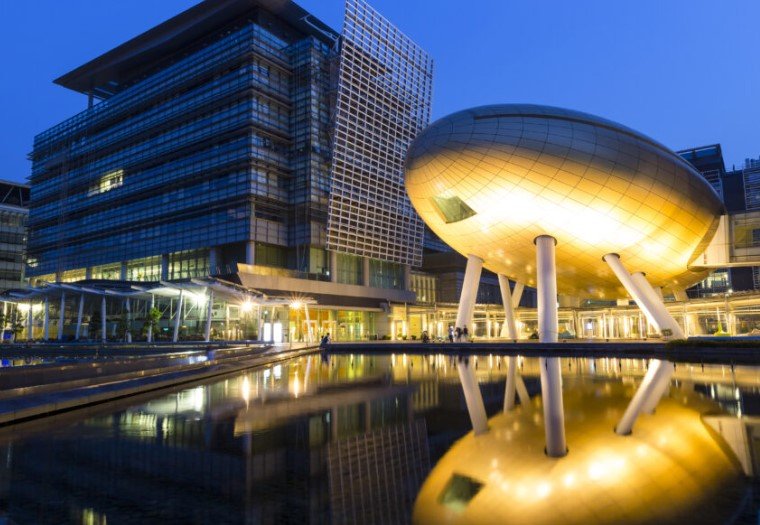India, the United Arab Emirates, and Saudi Arabia are leading a major shift in global technology innovation. With new AI campuses and digital ecosystems set to launch in 2025, these nations are building tech hubs that blend local culture with cutting-edge advancements, challenging traditional centers like Silicon Valley.
Gulf Nations Build Massive AI Powerhouses
The UAE is pushing hard to become a key player in artificial intelligence. In May 2025, during a high-level visit, Abu Dhabi unveiled Stargate UAE, a massive 10-square-mile AI campus led by tech firm G42. This project aims to house hundreds of thousands of advanced chips and reach a five-gigawatt capacity by full operation.
Saudi Arabia matches this ambition with its own investments. The Public Investment Fund launched HUMAIN in 2025, focusing on data centers, cloud services, and language models tailored to Arabic users. At the LEAP 2025 conference, a $1.5 billion expansion was announced for ultra-fast AI infrastructure in Riyadh and Dammam.
These efforts highlight a broader trend. Both countries are investing billions to create local compute power, reducing reliance on foreign tech. For instance, the UAE’s Falcon Arabic model adapts AI to regional languages, making tools more accessible and culturally relevant.

Experts note this could reshape global standards. By 2026, initial phases of these campuses will start operations, drawing talent and partnerships from around the world.
India’s Role in Decentralized Digital Ecosystems
India stands out with its vibrant tech scene in cities like Bengaluru. The country is fostering digital ecosystems that integrate AI, blockchain, and IoT, often through collaborations with Gulf nations.
Recent partnerships show promise. A delegation visit in late 2024 highlighted opportunities in smart cities and digital infrastructure across the UAE and Saudi Arabia. Indian firms are poised to expand in these markets, tapping into Gulf investments for joint ventures.
Bengaluru’s innovation hubs are key. They support startups in deep tech areas like quantum computing and biotechnology, with government backing for AI-driven projects.
This growth ties into India’s economic goals. By 2025, the tech sector contributes over 10 percent to GDP, with exports expected to rise through Middle East alliances.
Cultural and Sovereign Influences on Tech
Innovation in these regions goes beyond hardware. It weaves in cultural elements, ensuring tech reflects local values and languages.
In Saudi Arabia, HUMAIN Chat serves millions with customized features that align with regional norms. This approach asserts linguistic sovereignty and boosts user adoption.
The UAE integrates AI into education and government. Starting in the 2025-2026 school year, AI becomes a core subject in public schools, preparing students for a digital future.
India adds its flavor through diverse talent pools. Developers in decentralized networks build AI models openly, without needing massive funding.
These efforts create balanced ecosystems. They promote inclusive growth, where tech serves local needs while competing globally.
- Key cultural integrations include language-specific AI models.
- Sovereign funds drive investments in homegrown tech stacks.
- Education initiatives build long-term talent pipelines.
US Partnerships Boost Regional Innovation
Collaborations with the US are accelerating progress. The UAE’s AI campus involves American firms like Cisco and SoftBank, easing tech export rules for safe AI deployment.
Saudi Arabia attracts US chipmakers for its data centers. These partnerships provide expertise and funding, helping Gulf nations scale quickly.
India benefits too. Joint startups and research ventures, like the Atal Incubation Centre at IIT Delhi’s Abu Dhabi campus, foster innovation between Indian and UAE teams.
This global teamwork signals a shift. No longer just consumers, these countries are co-creators in tech’s future.
| Partnership Highlights | Details |
|---|---|
| UAE-US AI Campus | 10-square-mile site, 5GW capacity by 2026 |
| Saudi PIF Investments | $15 billion in AI, including HUMAIN stack |
| India-UAE Alliances | Joint startups in deep tech and smart cities |
| Education Focus | AI as core school subject in UAE from 2025 |
Challenges and Future Outlook
Despite rapid growth, hurdles remain. Talent shortages and regulatory differences could slow progress. For example, attracting skilled workers to new hubs requires competitive incentives.
Energy demands for AI campuses pose environmental concerns. Nations are exploring sustainable options, like renewable power sources.
Looking ahead, experts predict these regions will influence global AI standards by 2030. Decentralized innovation could democratize tech, making it more accessible worldwide.
India’s massive developer base, combined with Gulf funding, might lead to breakthroughs in areas like healthcare and finance.
The outlook is optimistic. As these ecosystems mature, they promise economic boosts and innovative solutions tailored to diverse populations.
What do you think about this tech shift? Share your thoughts in the comments and spread the word to keep the conversation going.
